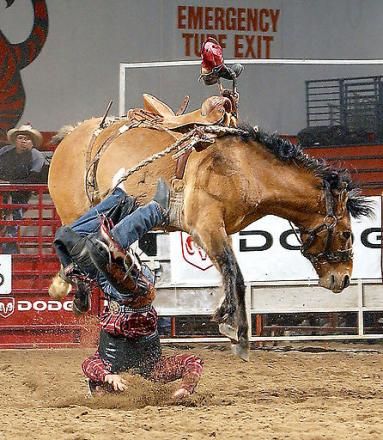Friday, August 18, 2017 9:18:02 AM
...$500 MILLION is $20.5 BILLION "off" from $21 BILLION asserted.
...might want to take a look at the actual documents.
...for example ~
...I have highlighted in RED.
WMILT – QUARTERLY SUMMARY REPORT 6/30/2015
https://www.sec.gov/Archives/edgar/data/1545078/000090951815000241/mm07-3115_8ke991.htm
Note 10: Director and Officer Downstream Litigation
On October 14, 2014, the Trust commenced two actions against certain directors and officers of WMI and WMB, as applicable, (the “D&O Defendants”): (i) one action in the King County Superior Court of the State of Washington (the “Washington D&O Litigation”) and (ii) an adversary proceeding in the Bankruptcy Court (the “D&O Adversary Proceeding” and, collectively, the “D&O Litigations”). In the Washington D&O Litigation, the Trust sought at least $500 million in damages and costs and reasonable attorneys’ fees, asserting, among other things, that the D&O Defendants breached their fiduciary duties of loyalty, care and good faith to WMI by implementing, approving or acquiescing in the transfer of $500 million from WMI to WMB on September 10, 2008 (the “September Downstream”) and that the September Downstream was a waste of WMI’s corporate assets. In the D&O Adversary Proceeding, the Trust sought to, among other things, disallow the D&O Defendants’ proofs of claim against the Debtors’ estates for indemnification, advancement, contribution, and/or reimbursement allegedly arising from their employment with WMI. The Trust asserted that the indemnification sought does not extend to any of the D&O Defendants because they breached their fiduciary duties, which excuses any obligation to provide the D&O Defendants indemnification, advancement, contribution, and/or reimbursement and under WMIs organizational documents and under other applicable Washington law. Moreover, the Trust asserted that, to the extent such claims were allowed, the D&O Defendants’ proofs of claim should be subordinated under section 510(c) of the Bankruptcy Code to all other claims against the Debtors’ estates as a result of the D&O Defendants’ inequitable conduct, as described in the D&O Litigations.
Such was also well publicized in financial and legal articles (all PUBLICLY AVAILABLE).
Washington Mutual Inc. v. XL Specialty Insurance Co. et al., filed March 15 in U.S. Bankruptcy Court in Wilmington, Del., also accuses the insurers of breach of good faith and fair dealing. According to the lawsuit, on Sept. 28, 2008, just 15 days before the Office of Thrift Supervision seized Washington Mutual Bank, several directors and officers of Washington Mutual Inc. ordered a “downstream capital contribution” of $500 million to the bank unit.
In the days just before WaMu’s collapse in September 2008, the bank holding company made a $500 million “downstream” capital contribution in what proved to be a futile attempt to alleviate the bank’s liquidity crisis. The FDIC took control of the bank on September 28, 2008 and the bank holding company filed for bankruptcy. Following the bankruptcy filing, the committee of unsecured creditors sent the holding company’s former directors and officers a demand letter, asserting that the downstream capital contribution was wrongful and had been made in breach of their fiduciary duties and seeking damages. For the policy period May 1, 2007 to May 1, 2008, WaMu’s bank holding company (hereafter, WaMu) had a $250 million D&O insurance program arranged in twelve layers. For the following period, May 1, 2008 to May 1, 2009, WaMu had a separate $250 million D&O insurance tower also consisting of twelve layers.
The trust responsible for distributing any remaining assets of Washington Mutual Inc. to unsecured creditors has sued the former directors and officers of the bank holding company, alleging they carried out “a reckless and inexplicable transaction that wasted at least $500 million” of its capital by transferring the money to the books of Washington Mutual Bank shortly before the bank subsidiary failed. In parallel lawsuits filed Tuesday in King County Superior Court and in bankruptcy court in Delaware, the WMI Liquidating Trust claims Washington Mutual Inc.’s executives in early September 2008 “responded out of panic rather than reason” when they moved the money “downstream” to the bank in a last-ditch effort to bolster its capital. The suit says the $500 million was seized by regulators along with Washington Mutual Bank’s other assets on Sept. 25 and transferred to JPMorgan Chase when it acquired the failed bank. A more prudent course, according to the suit, would have been to leave the money at the holding company, out of regulators’ reach and available to creditors and shareholders.
Recent COOP News
- Form 4 - Statement of changes in beneficial ownership of securities • Edgar (US Regulatory) • 05/30/2024 08:07:34 PM
- Form 8-K - Current report • Edgar (US Regulatory) • 05/24/2024 08:36:48 PM
- Form 4 - Statement of changes in beneficial ownership of securities • Edgar (US Regulatory) • 05/24/2024 08:33:25 PM
- Form 4 - Statement of changes in beneficial ownership of securities • Edgar (US Regulatory) • 05/24/2024 08:28:46 PM
- Form 4 - Statement of changes in beneficial ownership of securities • Edgar (US Regulatory) • 05/24/2024 08:26:19 PM
- Form 4 - Statement of changes in beneficial ownership of securities • Edgar (US Regulatory) • 05/24/2024 08:24:11 PM
- Form 4 - Statement of changes in beneficial ownership of securities • Edgar (US Regulatory) • 05/24/2024 08:22:07 PM
- Form 4 - Statement of changes in beneficial ownership of securities • Edgar (US Regulatory) • 05/24/2024 08:19:44 PM
- Form 4 - Statement of changes in beneficial ownership of securities • Edgar (US Regulatory) • 05/24/2024 08:17:44 PM
- Xome Democratizes Real Estate with Launch of DIY Sales Platform, No Agent Required • Business Wire • 05/22/2024 01:00:00 PM
- Form 4 - Statement of changes in beneficial ownership of securities • Edgar (US Regulatory) • 05/15/2024 10:47:32 PM
- Form DEFA14A - Additional definitive proxy soliciting materials and Rule 14(a)(12) material • Edgar (US Regulatory) • 05/15/2024 12:11:30 PM
- Form 4 - Statement of changes in beneficial ownership of securities • Edgar (US Regulatory) • 05/10/2024 12:12:48 AM
- Form 144 - Report of proposed sale of securities • Edgar (US Regulatory) • 05/07/2024 08:22:09 PM
- Mr. Cooper Group Reports First Quarter 2024 Results • Business Wire • 04/24/2024 11:00:00 AM
- Mr. Cooper Group Announces Two New Senior Leaders • Business Wire • 04/23/2024 01:00:00 PM
- Mr. Cooper Group Inc. to Discuss First Quarter 2024 Financial Results on April 24, 2024 • Business Wire • 04/05/2024 03:37:00 AM
- Form 4 - Statement of changes in beneficial ownership of securities • Edgar (US Regulatory) • 03/11/2024 09:34:36 PM
- Form 4 - Statement of changes in beneficial ownership of securities • Edgar (US Regulatory) • 03/04/2024 11:05:39 PM
- Form 4 - Statement of changes in beneficial ownership of securities • Edgar (US Regulatory) • 03/04/2024 11:04:15 PM
- Form 4 - Statement of changes in beneficial ownership of securities • Edgar (US Regulatory) • 03/04/2024 11:03:04 PM
- Form 4 - Statement of changes in beneficial ownership of securities • Edgar (US Regulatory) • 03/04/2024 11:01:41 PM
- Form 4 - Statement of changes in beneficial ownership of securities • Edgar (US Regulatory) • 03/04/2024 10:59:25 PM
- Form 4 - Statement of changes in beneficial ownership of securities • Edgar (US Regulatory) • 02/26/2024 09:28:25 PM
- Form 4 - Statement of changes in beneficial ownership of securities • Edgar (US Regulatory) • 02/14/2024 09:15:59 PM
Glidelogic Corp. Becomes TikTok Shop Partner, Opening a New Chapter in E-commerce Services • GDLG • Jul 5, 2024 7:09 AM
Freedom Holdings Corporate Update; Announces Management Has Signed Letter of Intent • FHLD • Jul 3, 2024 9:00 AM
EWRC's 21 Moves Gaming Studios Moves to SONY Pictures Studios and Green Lights Development of a Third Upcoming Game • EWRC • Jul 2, 2024 8:00 AM
BNCM and DELEX Healthcare Group Announce Strategic Merger to Drive Expansion and Growth • BNCM • Jul 2, 2024 7:19 AM
NUBURU Announces Upcoming TV Interview Featuring CEO Brian Knaley on Fox Business, Bloomberg TV, and Newsmax TV as Sponsored Programming • BURU • Jul 1, 2024 1:57 PM
Mass Megawatts Announces $220,500 Debt Cancellation Agreement to Improve Financing and Sales of a New Product to be Announced on July 11 • MMMW • Jun 28, 2024 7:30 AM












